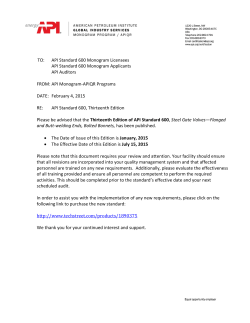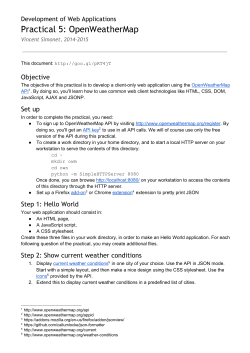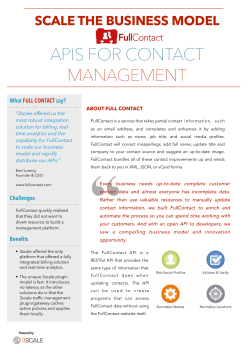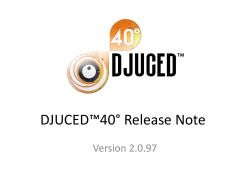
Korean Cyber Payments
Title Page
Korean Cyber Payment Services
Using the Simple Order API
April 2015
CyberSource Corporation HQ | P.O. Box 8999 | San Francisco, CA 94128-8999 | Phone: 800-530-9095
CyberSource Contact Information
For general information about our company, products, and services, go to
http://www.cybersource.com.
For sales questions about any CyberSource Service, email sales@cybersource.com or
call 650-432-7350 or 888-330-2300 (toll free in the United States).
For support information about any CyberSource Service, visit the Support Center at
http://www.cybersource.com/support.
Copyright
© 2015 CyberSource Corporation. All rights reserved. CyberSource Corporation ("CyberSource") furnishes this
document and the software described in this document under the applicable agreement between the reader of
this document ("You") and CyberSource ("Agreement"). You may use this document and/or software only in
accordance with the terms of the Agreement. Except as expressly set forth in the Agreement, the information
contained in this document is subject to change without notice and therefore should not be interpreted in any way
as a guarantee or warranty by CyberSource. CyberSource assumes no responsibility or liability for any errors
that may appear in this document. The copyrighted software that accompanies this document is licensed to You
for use only in strict accordance with the Agreement. You should read the Agreement carefully before using the
software. Except as permitted by the Agreement, You may not reproduce any part of this document, store this
document in a retrieval system, or transmit this document, in any form or by any means, electronic, mechanical,
recording, or otherwise, without the prior written consent of CyberSource.
Restricted Rights Legends
For Government or defense agencies. Use, duplication, or disclosure by the Government or defense agencies
is subject to restrictions as set forth the Rights in Technical Data and Computer Software clause at DFARS
252.227-7013 and in similar clauses in the FAR and NASA FAR Supplement.
For civilian agencies. Use, reproduction, or disclosure is subject to restrictions set forth in subparagraphs (a)
through (d) of the Commercial Computer Software Restricted Rights clause at 52.227-19 and the limitations set
forth in CyberSource Corporation's standard commercial agreement for this software. Unpublished rights
reserved under the copyright laws of the United States.
Trademarks
CyberSource, The Power of Payment, CyberSource Payment Manager, CyberSource Risk Manager,
CyberSource Decision Manager, CyberSource Connect, Authorize.Net, and eCheck.net are trademarks and/or
service marks of CyberSource Corporation. All other brands and product names are trademarks or registered
trademarks of their respective owners.
2
CONTENTS
Contents
Recent Revisions to This Document
About This Guide
6
Audience and Purpose
6
Conventions 6
Important Statement 6
Text and Command Conventions
Related Documents
Customer Support
Chapter 1
Introduction
8
Payment Types
8
7
Requesting KCP Services
Initiating Payment
Refunding a Payment
Special Characters
Request Fields
Reason Codes
13
14
14
16
Data Type Definitions
Reply Fields
9
13
Checking Payment Status
Appendix A API Fields
6
7
KCP Services 9
Initiate Payment Service Sequence
Merchant URL 10
Check Status Service 12
Refund Service 12
Chapter 2
5
16
16
17
19
21
KCP Services Using the Simple Order API | April 2015
3
Contents
Appendix B Examples
22
Name-Value Pair Examples
XML Examples
22
25
KCP Services Using the Simple Order API | April 2015
4
REVISIONS
Recent Revisions to This
Document
Release
Changes
April 2015
Updated the Important note regarding supported browsers and mobile
devices. See page 8.
January 2014
Updated the “Related Documents” section. See page 7.
Added the apCheckStatusReply_processorTransactionID API reply field.
See page 19.
October 2013
Initial release.
KCP Services Using the Simple Order API | April 2015
5
ABOUT GUIDE
About This Guide
Audience and Purpose
This guide is written for merchants who want to offer Korean Cyber Payment (KCP)
services to customers and describes tasks a merchant must complete in order to make a
payment, request the status of a payment, or refund a payment. It is intended to help the
merchant provide a seamless customer payment experience.
Conventions
Important Statement
An Important statement contains information essential to successfully
completing a task or learning a concept.
Important
Text and Command Conventions
Convention
Usage
bold
Field and service names in text; for example:
Include the requestID field.
Items that you are instructed to act upon; for example:
Click Save.
monospace
KCP Services Using the Simple Order API | April 2015
XML elements.
Code examples and samples.
6
About This Guide
Related Documents
Getting Started with CyberSource Advanced for the Simple Order API—describes
how to start using your CyberSource advanced account.
Business Center Overview—describes the features and options available with your
CyberSource advanced account using the Business Center.
Simple Order API and SOAP Toolkit API Documentation and Downloads page.
Refer to the Support Center for complete CyberSource technical documentation:
http://www.cybersource.com/support_center/support_documentation
Customer Support
For support information about any CyberSource service, visit the Support Center:
http://www.cybersource.com/support
KCP Services Using the Simple Order API | April 2015
7
CHAPTER
1
Introduction
All KCP payments are processed in South Korean Won (KRW). Contact KCP
for a list of supported desktop browsers and mobile devices.
Important
Payment Types
Table 1
Payment Types
Payment Type
Description
ACC
Credit card payment.
RBT
Real-time bank transfer.
MBP
Mobile billing payment.
KCP Services Using the Simple Order API | April 2015
8
Chapter 1
Introduction
KCP Services
Initiate Payment Service Sequence
Customer
Merchant
CyberSource
1
Customer clicks on
Korean payment
option
2
Merchant posts
data to CyberSource
API
3
CyberSource builds
and returns redirect
URL
5
Korean payment
plug-in loads
4
Merchant redirects
customer to URL
6
Customer enters
payment details
9
Payment status is
displayed
Processor
7
Processor confirms
payment
8
Merchant redirects
the customer to the
return URL
10
Merchant request
the Check Status
service
11
CyberSource looks
up payment status
13
Merchant receives
payment result
12
CyberSource returns
payment result
1
When ready to pay for a product selected from your web site, the customer selects the
Korean payment type on your checkout or payment page.
2
Using the CyberSource API, you POST the merchant details and order information
from the initiate payment service request to CyberSource.
3
CyberSource creates a signed merchant URL (see "Merchant URL") to redirect the
customer to the KCP payment web site. The signed merchant URL is sent back to
you.
KCP Services Using the Simple Order API | April 2015
9
Chapter 1
Introduction
4
Redirect the customer to the URL that CyberSource sent to you in Step 3. This URL
directs the customer to the KCP payment web site.
5
The customer clicks Submit and the Korean payment plug-in is launched. The plug-in
is an executable file that is downloaded to the customer’s device when the customer is
browsing from a Windows operating system.
6
The customer enters payment details and confirms the payment.
7
The processor confirms the payment and sends verification to CyberSource.
8
CyberSource stores the payment status. You can retrieve the payment status by
requesting the check status service (see page 12).
9
The customer’s browser is redirected to the return URL that is specified during
merchant boarding. The return URL contains the payment status. CyberSource
recommends that this status is used only for browser control to display a user-friendly
message to the customer. You should ship goods based on the payment status
retrieved from the check status service request (see page 12).
10 The merchant requests the Check Status service from CyberSource. CyberSource
recommends that this service be requested immediately after Step 9 and every hour
thereafter until the payment status is COMPLETED or DECLINED.
11 CyberSource verifies the payment status with the processor.
12 CyberSource sends the payment result to the merchant.
13 The merchant receives the payment result. If the Check Status result is PENDING, the
payment has not yet been completed and the goods should not be shipped. If the
result is COMPLETED, the customer has successfully completed the transaction and
the goods can be shipped. If the result is DECLINE, the payment was rejected by the
processor and the goods should not be shipped to the customer.
Merchant URL
The merchant URL consists of the following parameters.
Table 2
Merchant URL Parameters
Parameter
Description
KCP web site
Test: https://certpay.kcp.co.kr/Pay/module/cyberSource/
KCP_Gateway.jsp
Live: https://pay.kcp.co.kr/Pay/module/cyberSource/KCP_
Gateway.jsp
buyr_mail
Customer email.
buyr_name
Customer name.
buyr_tel
Customer telephone number.
currency
Three-digit numeric currency code used for the order.
KRW: 410
eng_flag
KCP Services Using the Simple Order API | April 2015
English language indicator for the KCP plug-in.
10
Chapter 1
Table 2
Introduction
Merchant URL Parameters (Continued)
Parameter
Description
escw_used
Provides the Escrow option to a customer.
Possible values:
Yes: Y
No: N
Important You must have the appropriate contract with
KCP to offer escrow. Escrow is supported only for bank
transfers made using a desktop PC. It is not supported for
mobile devices. Escrow can be used only for transactions
with an amount greater than 50,000 KRW.
good_mny
Payment amount.
good_name
Product purchased by the customer.
ordr_idxx
Unique merchant-generated transaction ID. If it is not
included, CyberSource will generate this transaction ID.
pay_method
Payment method.
Possible values:
quotaopt
100000000000—Credit card.
010000000000—Bank transfer.
000010000000—Mobile billing.
Installment payment frequency for credit card payments only.
Possible values: 00 to 12.
Default value: 12.
ret_url
Merchant-defined URL for displaying the payment results to
the customer. You can also specify this URL during merchant
boarding.
signature
RSA signature and SHA-256 data hashing.
site_cd
KCP merchant ID.
site_logo
KCP payment user interface, which can be customized with
a merchant logo. The image size must not exceed 150 (w) x
50 (h) pixels.
Format: JPG or GIF.
site_name
Merchant brand name.
skin_indx
Payment UI skin number. Each number displays a different
color of the KCP plug-in UI. Refer to the KCP documentation
for more information.
KCP Services Using the Simple Order API | April 2015
11
Chapter 1
Introduction
Check Status Service
When the customer is redirected to your web site after making a payment, you can
request the status of the payment. Verifying a payment status is a follow-on transaction
that uses the request ID returned from the initiate payment request. The initiate payment
request ID links the check status request to the payment transaction. See "Checking
Payment Status," page 14.
Important
CyberSource recommends that you request only the check status service
when you receive the return URL from KCP. If you do not receive a return URL
from KCP, you should wait 1 hour before requesting the check status service,
then request it at hourly intervals.
Refund Service
A refund is a follow-on transaction that uses the request ID returned from the initiate
payment request. The request ID links the refund transaction to the payment transaction.
See "Refunding a Payment," page 14.
Important
CyberSource recommends that the payment status be COMPLETED before
you refund a payment and return funds to the customer account. Before
refunding a payment, request that the check status service retrieves the status
of the payment.
KCP Services Using the Simple Order API | April 2015
12
CHAPTER
Requesting KCP Services
2
Initiating Payment
To initiate a payment:
Step 1
Set the apInitiateService_run field to true.
Step 2
Include the following fields in the request:
billTo_firstName
billTo_lastName
billTo_phoneNumber
billTo_email
apInitiateService_returnURL
apInitiateService_productName
apInitiateService_escrowAgreement
apInitiateService_languageInterface—the default is Korean.
installment_frequency—this field is supported only for credit card payments when the
amount of the transaction is greater then 50000 KRW. Cards issued outside of Korea
are not supported. Depending on the agreement with KCP and the issuers, there
could be a service charge. KCP has an agreement with all issuers to process
installment payments.
apPaymentType
purchaseTotals_currency
purchaseTotals_grandTotalAmount
merchantID
merchantReferenceCode
For detailed descriptions of all request and reply fields, see "Reply Fields," page 19. For
an initiate payment example, see "Examples," page 22.
KCP Services Using the Simple Order API | April 2015
13
Chapter 2
Requesting KCP Services
Checking Payment Status
To check the status of a payment:
Step 1
Set the apCheckStatusService_run field to true.
Step 2
Include the following fields in the request:
apCheckStatusService_apInitiateRequestID—include the value returned in the initiate
payment service reply. See "Reply Fields," page 19.
apPaymentType
merchantID
merchantReferenceCode
For detailed descriptions of all request and reply fields, see "API Fields," page 16. For a
check status example, see "Examples," page 22.
Refunding a Payment
Important
Multiple partial refunds are allowed. Partial refunds are not allowed for mobile
billing payments or escrow payments. Refunds using the API service are not
allowed for escrow payments.
To refund a payment:
Step 1
Set the apRefundService_run field to true.
Step 2
Include the following fields in the request:
apRefundService_requestID—include the value returned in the initiate payment
service reply. See "Reply Fields," page 19.
apPaymentType
apRefundService_reason
purchaseTotals_currency
purchaseTotals_grandTotalAmount
merchantID
merchantReferenceCode
KCP Services Using the Simple Order API | April 2015
14
Chapter 2
Requesting KCP Services
For detailed descriptions of all request and reply fields, see "API Fields," page 16. For a
refund example, see "Examples," page 22.
KCP Services Using the Simple Order API | April 2015
15
APPENDIX
A
API Fields
See Getting Started with CyberSource Advanced for the Simple Order API for a
description of how name-value pair names relate to their corresponding XML element
names.
Data Type Definitions
For more information about these data types, see the World Wide Web Consortium (W3C)
XML Schema Part 2: Datatypes specification.
Data Type
Description
Date and Time
Format is YYYY-MM-DDThhmmssZ, where:
T separates the date and time
Z indicates Coordinated Universal Time (UTC).
Decimal
Number that includes a decimal point.
Integer
Whole number {..., -3, -2, -1, 0, 1, 2, 3, ...}
String
Sequence of letters, numbers, spaces, and special characters
Special Characters
Do not use the following special characters in the Initiate Payment request (see page 13):
Comma
Ampersand
Semicolon
New line
Backslash
Pipe line
Single
Quotation
Mark
Double
Quotation
Mark
,
&
;
\n
\
|
‘
“
KCP Services Using the Simple Order API | April 2015
16
Appendix A
API Fields
Request Fields
Table 3
Request-Level for the Simple Order API
Field Name
Description
Used By:
Required (R) or
Optional (O)
Data Type
& Length
apCheckStatusService_
apInitiateRequestID
Identifier returned from the initiate
payment service request.
Check Status (R)
String (32)
apCheckStatusService_run
The check status service. Possible
values:
Check Status (R)
apInitiateService_
escrowAgreement
true: include the service in your
request.
false (default): do not include the
service in your request.
Indicates whether to use the
customer’s escrow agreement.
Possible values:
Y: yes, use the customer’s escrow
agreement.
N: no, do not use the customer’s
escrow agreement.
Initiate Payment (R)
String (1)
Initiate Payment (R)
String (1)
Note The escrow agreement can be
used only if the transaction is greater
than or equal to 50,000 KRW. You
must enter the shipping details in the
KCP administration panel for escrow
payments.
Important Only available for bank
transfer payments.
apInitiateService_
languageInterface
Language indicator for the KCP plugin.
Possible values:
EN: English
Korean (default)
apInitiateService_productName
Product offered to the customer.
Initiate Payment (O)
String (30)
apInitiateService_returnURL
URL of the web page to which
customer is directed when the
transaction is completed.
Initiate Payment (R)
String (256)
Note This URL overrides the return
URL that was specified during
merchant boarding.
KCP Services Using the Simple Order API | April 2015
17
Appendix A
Table 3
API Fields
Request-Level for the Simple Order API (Continued)
Field Name
Description
Used By:
Required (R) or
Optional (O)
apInitiateService_run
The initiate payment service. Possible
values:
Initiate Payment (R)
apPaymentType
true: include the service in your
request.
false (default): do not include the
service in your request.
Identifier for payment type.
Initiate Payment (R)
Possible values:
Check Status (R)
ACC: Credit Card Payment.
RBT: Real Time Bank Transfer.
MBP: Mobile Billing Payment.
Identifier returned from the initiate
payment service request.
Refund (R)
apRefundService_reason
Reason for the refund.
Refund (O)
apRefundService_run
The refund service. Possible values:
Refund (R)
billTo_email
true: include the service in your
request.
false (default): do not include the
service in your request.
Customer email address, including
the full domain name.
String (5)
Refund (R)
apRefundService_
apInitiateRequestID
Data Type
& Length
Initiate Payment (O)
String (256)
String (50)
Check Status (O)
Refund (O)
billTo_firstName
Customer first name.
Initiate Payment (O)
String (15)
Check Status (O)
Refund (O)
billTo_lastName
Customer last name.
Initiate Payment (O)
String (15)
Check Status (O)
Refund (O)
billTo_phoneNumber
Customer phone number.
Initiate Payment (O)
String (20)
Check Status (O)
Refund (O)
installment_frequency
Frequency of payments. Possible
values are 0 to 12.
Initiate Payment (O)
String (2)
Default value: 12.
Note This field is for credit card
payments only.
KCP Services Using the Simple Order API | April 2015
18
Appendix A
Table 3
API Fields
Request-Level for the Simple Order API (Continued)
Field Name
Description
Used By:
Required (R) or
Optional (O)
Data Type
& Length
merchantID
Your CyberSource merchant ID.
Initiate Payment (R)
String (50)
Check Status (R)
Refund (R)
merchantReferenceCode
purchaseTotals_currency
Merchant-generated order reference
or tracking number. CyberSource
recommends that you send a unique
value for each transaction so that you
can perform meaningful searches for
the transaction. For more information
about tracking orders, see Getting
Started with CyberSource Advanced
for the Simple Order API.
Initiate Payment (R)
Currency used for the order.
Initiate Payment (R)
Value: KRW
Check Status (R)
String (50)
Check Status (R)
Refund (R)
String (3)
Refund (R)
purchaseTotals_
grandTotalAmount
Grand total for the order.
Initiate Payment (R)
Important The grand_total_
amount value should not contain a
decimal point. For example, 210.00
should be 21000.
Refund (R)
Decimal (12)
Reply Fields
Table 4
Reply Fields for the Simple Order API
Field Name
Description
Returned By
Data Type
& Length
apCheckStatusReply_
paymentStatus
Description of the payment status.
Possible values:
Check Status
String (15)
Check Status
String (14)
apCheckStatusReply_
processorTransactionID
PENDING
COMPLETED
DECLINED
TRADE_NOT_EXIST
KCP-generated transaction ID
number.
KCP Services Using the Simple Order API | April 2015
19
Appendix A
Table 4
API Fields
Reply Fields for the Simple Order API (Continued)
Field Name
Description
Returned By
Data Type
& Length
apCheckStatusReply_
reasonCode
Numeric value corresponding to the
result of the apCheckStatusService_
run request. See "Reason Codes,"
page 21.
Check Status
Integer (5)
apCheckStatusReply_
reconciliationID
Reference number for the transaction.
For more information about tracking
orders, see Getting Started with
CyberSource Advanced for the
Simple Order API.
Initiate Payment
String (32)
apInitiateReply_merchantURL
Redirect URL to the KCP plug in. The
URL contains a unique reference and
payment details for the order.
Initiate Payment
Encrypted
string of
characters.
Important Internet Explorer restricts
browser URL lengths, so the
customer should be redirected to this
URL using the code described on
page 10.
apInitiateReply_reasonCode
Numeric value corresponding to the
result of the apInitiateService_run
request.
Initiate Payment
Integer (5)
apInitiateReply_reconciliationID
Reference number for the transaction.
For more information about tracking
orders, see Getting Started with
CyberSource Advanced for the
Simple Order API.
Initiate Payment
String (32)
apRefundReply_amount
The total refund amount.
Refund
Decimal (15)
apRefundReply_dateTime
Local date and time of the refund.
Refund
Date and
Time (14)
Format: YYYY-MM-DDThhmmssZ,
where:
T separates the date and time
Z indicates Coordinated Universal
Time (UTC).
apRefundReply_
processorTransactionID
KCP-generated transaction ID
number.
Refund
String (14)
apRefundReply_reasonCode
Numeric value corresponding to the
result of the apRefundService_run
request.
Refund
Integer (5)
decision
One-word description of the request
result.
Initiate Payment
String (50)
Check Status
Refund
KCP Services Using the Simple Order API | April 2015
20
Appendix A
Table 4
API Fields
Reply Fields for the Simple Order API (Continued)
Field Name
Description
Returned By
Data Type
& Length
merchantReferenceCode
Merchant-generated order reference
or tracking number. CyberSource
recommends that you send a unique
value for each transaction so that you
can perform meaningful searches for
the transaction. For more information
about tracking orders, see Getting
Started with CyberSource Advanced
for the Simple Order API.
Initiate Payment
String (50)
purchaseTotals_currency
Check Status
Refund
Currency used for the order.
String (10)
Value: KWR
reasonCode
Numeric value corresponding to the
result of the request. See "Reason
Codes," page 21.
Initiate Payment
Integer (5)
Check Status
Refund
requestID
Identifier for the request generated by
the client.
Initiate Payment
String (32)
Check Status
Refund
Reason Codes
The reasonCode field contains additional data regarding the decision response of the
transaction.
Table 5
Reason Codes and Decisions
Reason Code
Decision
100
ACCEPT
101
REJECT
102
REJECT
150
ERROR
KCP Services Using the Simple Order API | April 2015
21
APPENDIX
Examples
B
Name-Value Pair Examples
Example
Initiate Payment Request
apInitiateService_run=true
merchantID=test_merchantID
merchantReferenceCode=demo_merchant
billTo_firstName=John
billTo_lastName=Smith
billTo_phoneNumber=408-557-1045
billTo_email=jsmith@example.com
purchaseTotals_currency=KRW
purchaseTotals_grandTotalAmount=1100
installment_frequency=0
apPaymentType=ACC
apInitiateService_returnURL=https://www.example.com
apInitiateService_productName=Television
apInitiateService_productDescription=Television
apInitiateService_escrowAgreement=Y
apInitiateService_languageInterface=EN
KCP Services Using the Simple Order API | April 2015
22
Appendix B
Example
Examples
Initiate Payment Reply
merchantReferenceCode=demo_merchant
requestID=3771837213330181553725
decision=ACCEPT
reasonCode=100
apInitiateReply_reasonCode=100
apInitiateReply_merchantURL=https://testpay.kcp.co.kr/Pay/module/
cyberSource/KCP_Gateway.jsp?buyr_mail=null%40cybersource.or.kr&
buyr_name=John+Smith&buyr_tel=923123456¤cy=410&eng_flag=Y&escw_
used=N&good_mny=1004&good_name=Television¬i_url=https%3A%2F%2F
www.example.com%2Fnotify%2Fkcp&ordr_idxx=123456789&pay_method=
100000000000"aopt=0&ret_url=http%3A%2F%2Fkcp.example.com%2Fkcp_
return.jsp&signature=N2NMHo4tmHMQbTkhy0%2FCpIhcWcsjCCn5IUr1soywc
uUeI9stmG4t3Od9tKOrkMdQJKXV32SNtgGV%2BEd9vpxpw%2FfkAXCAgnEKblTuM
7PmQjIO6sSVPviEJ7VGXEpO9egosHSZNeW9PuD6a4lAOS4%2BdeEwDGDBeYEnVtl
Q%2F6vmFXzPPI2jip5znF9x3RmzJW9l75hPH5cXFUjWnEmkWG0zxqSGvjFedrNs7
hjai1YWxiqrLRw5aJha0QEPgF5a6CRYFwN8vRndfEbNl6jGTe0rZMh%2BdI5grH9
cREcLBtK6WRmGebnit%2FqEDPv1AyCw3keK5iZXtrGYuqNPTz1uz0vTsw%3D%3D
&site_cd=S6314&site_logo=http%3A%2F%2Ftestpay.kcp.co.kr%2Fplugin%
2Fimg%2Fkcp.jpg&site_name=Cybersource&skin_indx=2
apInitiateReply_reconciliationID=ca308be3db8742ba9daef4326f21a511
Example
Check Status Request
apCheckStatusService_run=true
merchantID=test_merchantID
merchantReferenceCode=demo_merchant
apPaymentType=ACC
apCheckStatusService_apInitiateRequestID=3770131092530181553725
Example
Check Status Reply
merchantReferenceCode=demo_merchantID
requestID=3771840623730181553725
decision=ACCEPT
reasonCode=100
apCheckStatusReply_paymentStatus=COMPLETED
apCheckStatusReply_processorTransactionID>20130530123456
apCheckStatusReply_reasonCode=100
apCheckStatusReply_reconciliationID=ca308be3db8742ba9daef4326f21a511
KCP Services Using the Simple Order API | April 2015
23
Appendix B
Example
Examples
Refund Request
apRefundService_run=true
merchantID=test_merchantID
merchantReferenceCode=demo_merchant
purchaseTotals_currency=KRW
purchaseTotals_grandTotalAmount=11.00
apPaymentType=ACC
apRefundService_apInitiateRequestID=3770131092530181553725
apRefundService_reason=Damaged product.
Example
Refund Reply
merchantReferenceCode=demo_merchantID
requestID=3771840623730181553725
decision=ACCEPT
reasonCode=100
purchaseTotals_currency=KRW
apRefundReply_reasonCode=100
apRefundReply_amount=11.00
apRefundReply_dateTime=2013-08-22T15:07:47Z
apRefundReply_processorTransactionID=20130530123456
KCP Services Using the Simple Order API | April 2015
24
Appendix B
Examples
XML Examples
Example
Initiate Payment Request
<requestMessage xmlns="urn:schemas-cybersource-com:transaction-data1.91">
<merchantID>test_merchantID</merchantID>
<merchantReferenceCode>demo_merchant</merchantReferenceCode>
<billTo>
<firstName>John</firstName>
<lastName>Smith</lastName>
<phoneNumber>408-557-1045</phoneNumber>
<email>jsmith@example.com</email>
</billTo>
<purchaseTotals>
<currency>KRW</currency>
<grandTotalAmount>11.00</grandTotalAmount>
</purchaseTotals>
<installment>
<frequency>0</frequency>
</installment>
<apPaymentType>ACC</apPaymentType>
<apInitiateService run="true">
<returnURL>https://www.example.com</returnURL>
<productName>Television</productName>
<productDescription>Television</productDescription>
<escrowAgreement>Y</escrowAgreement>
<languageInterface>EN</languageInterface>
</apInitiateService>
</requestMessage>
KCP Services Using the Simple Order API | April 2015
25
Appendix B
Example
Examples
Initiate Payment Reply
<c:replyMessage xmlns:c="urn:schemas-cybersource-com:transaction-data-1.91">
<c:merchantReferenceCode>demo_merchant</c:merchantReferenceCode>
<c:requestID>3771837213330181553725</c:requestID>
<c:decision>ACCEPT</c:decision>
<c:reasonCode>100</c:reasonCode>
<c:apInitiateReply>
<c:reasonCode>100</c:reasonCode>
<c:merchantURL>https://testpay.kcp.co.kr/Pay/module/cyberSource/KCP_
Gateway.jsp?buyr_mail=null%40cybersource.or.kr&
buyr_name=John+Smith&buyr_tel=923123456¤cy=410&eng_flag=Y&escw_used=N&good_
mny=1004&good_name=Television¬i_url=https%3A%2F%2F
www.example.com%2Fnotify%2Fkcp&ordr_idxx=123456789&pay_method=
100000000000"aopt=0&ret_url=http%3A%2F%2Fkcp.example.com%2Fkcp_
return.jsp&signature=N2NMHo4tmHMQbTkhy0%2FCpIhcWcsjCCn5IUr1soywc
uUeI9stmG4t3Od9tKOrkMdQJKXV32SNtgGV%2BEd9vpxpw%2FfkAXCAgnEKblTuM
7PmQjIO6sSVPviEJ7VGXEpO9egosHSZNeW9PuD6a4lAOS4%2BdeEwDGDBeYEnVtl
Q%2F6vmFXzPPI2jip5znF9x3RmzJW9l75hPH5cXFUjWnEmkWG0zxqSGvjFedrNs7
hjai1YWxiqrLRw5aJha0QEPgF5a6CRYFwN8vRndfEbNl6jGTe0rZMh%2BdI5grH9
cREcLBtK6WRmGebnit%2FqEDPv1AyCw3keK5iZXtrGYuqNPTz1uz0vTsw%3D%3D
&site_cd=S6314&site_logo=http%3A%2F%2Ftestpay.kcp.co.kr%2Fplugin%
2Fimg%2Fkcp.jpg&site_name=Cybersource&skin_indx=2</c:merchantURL>
<c:reconciliationID>ca308be3db8742ba9daef4326f21a511</c:reconciliationID>
</c:apInitiateReply>
</c:replyMessage>
Example
Check Status Request
<requestMessage xmlns="urn:schemas-cybersource-com:transaction-data1.91">
<merchantID>test_merchantID</merchantID>
<merchantReferenceCode>demo_merchant</merchantReferenceCode>
<apPaymentType>ACC</apPaymentType>
<apCheckStatusService run="true">
<apInitiateRequestID>3770131092530181553725</apInitiateRequestID>
</apCheckStatusService>
</requestMessage>
KCP Services Using the Simple Order API | April 2015
26
Appendix B
Example
Examples
Check Status Reply
<c:replyMessage xmlns:c="urn:schemas-cybersource-com:transaction-data1.91">
<c:merchantReferenceCode>demo_merchantID</c:merchantReferenceCode>
<c:requestID>3771840623730181553725</c:requestID>
<c:decision>ACCEPT</c:decision>
<c:reasonCode>100</c:reasonCode>
<c:purchaseTotals>
<c:apCheckStatusReply>
<c:paymentStatus>COMPLETED</c:paymentStatus>
<c:processorTransactionID>20130530123456</
c:processorTransactionID>
<c:reasonCode>100</c:reasonCode>
<c:reconciliationID>ca308be3db8742ba9daef4326f21a511</
c:reconciliationID>
</c:apCheckStatusReply>
</c:replyMessage>
Example
Refund Request
<requestMessage xmlns="urn:schemas-cybersource-com:transaction-data1.91">
<merchantID>test_merchantID</merchantID>
<merchantReferenceCode>demo_merchant</merchantReferenceCode>
<purchaseTotals>
<currency>KRW</currency>
<grandTotalAmount>11.00</grandTotalAmount>
</purchaseTotals>
<apPaymentType>ACC</apPaymentType>
<apRefundService run="true">
<apInitiateRequestID>3770131092530181553725</apInitiateRequestID>
<reason>Damaged product.</reason>
</apRefundService>
</requestMessage>
KCP Services Using the Simple Order API | April 2015
27
Appendix B
Example
Examples
Refund Reply
<c:replyMessage xmlns:c="urn:schemas-cybersource-com:transaction-data1.91">
<c:merchantReferenceCode>demo_merchantID</c:merchantReferenceCode>
<c:requestID>3771840623730181553725</c:requestID>
<c:decision>ACCEPT</c:decision>
<c:reasonCode>100</c:reasonCode>
<c:purchaseTotals>
<c:currency>KRW</c:currency>
<c:apRefundReply>
<c:reasonCode>100</c:reasonCode>
<c:amount>5</c:amount>
<c:dateTime>2013-08-22T15:07:47Z</c:dateTime>
<c:processorTransactionID>20130530123456</
c:processorTransactionID>
</c:apRefundReply>
</c:replyMessage>
KCP Services Using the Simple Order API | April 2015
28
© Copyright 2025










